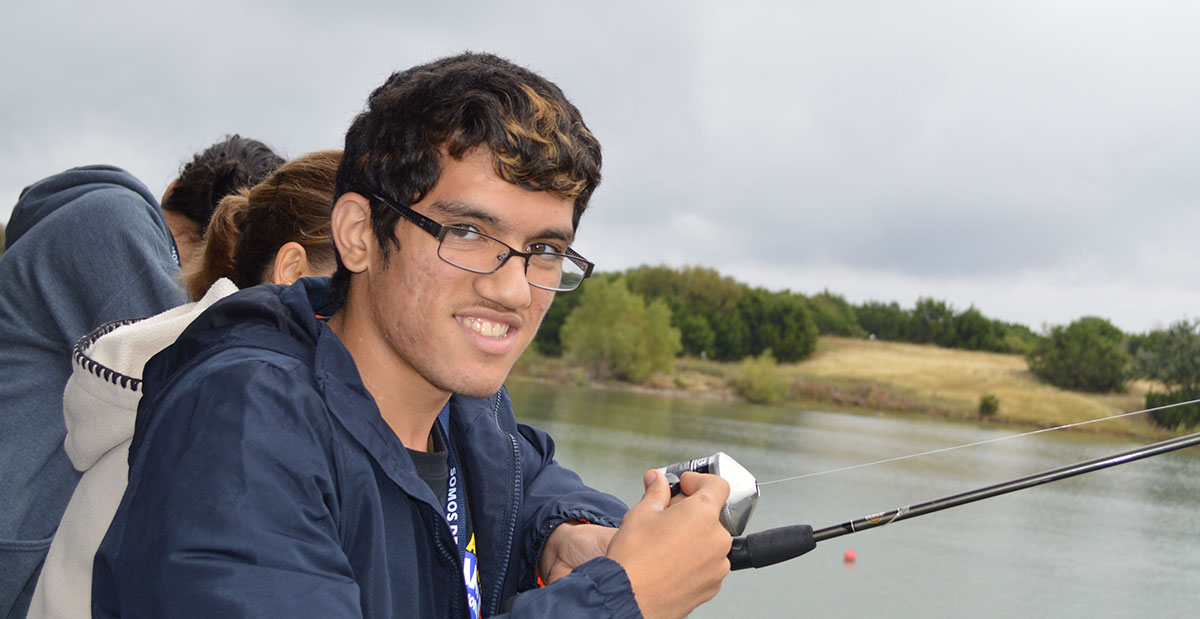
Aug 13, 2020 / Research & Innovation
Latest Drug Approval by the FDA Allows Treatment for Certain Patient Population
At Scottish Rite for Children, we are committed to discovering the newest treatments to provide the best care for our patients. The Neurology and Rehabilitation Medicine department works with pediatric orthopedic patients who also have related neuromuscular diseases or neurological disorders like cerebral palsy, epilepsy, tuberous sclerosis complex, and other conditions. Through research and patient-centered care, this team of experts are pioneers – conducting leading-edge research that can change the lives for this patient population.
In 2018, Director of Neurology and of the Tuberous Sclerosis Complex Clinic Steven Sparagana, M.D., and his team participated in an international, multi-center drug trial. The purpose of the study was to determine if the drug, Epidiolex (cannabidiol), could help cut down the number of seizures patients had and if it was safe for children and adults diagnosed with tuberous sclerosis complex (TSC).
About TSC:
Catherine Thompson, a neurology research coordinator who worked closely with Sparagana on this project, is excited for the newest approval. “Scottish Rite for Children was one of 49 institutions around the world to participate in trialing Epidiolex to treat TSC,” says Thompson. “From the positive results it showed, we know that it can truly help the children we treat with this complex disease. Seeing how our research has now come full circle and can positively impact clinical care is most rewarding and is the reason why we continue doing what we do – to find the best treatment solutions for the kids we treat.”
Learn more from the FDA’s official news release.
More details on the original research:
In 2018, Director of Neurology and of the Tuberous Sclerosis Complex Clinic Steven Sparagana, M.D., and his team participated in an international, multi-center drug trial. The purpose of the study was to determine if the drug, Epidiolex (cannabidiol), could help cut down the number of seizures patients had and if it was safe for children and adults diagnosed with tuberous sclerosis complex (TSC).
About TSC:
- Tuberous sclerosis complex (TSC) is an autosomal dominant genetic disorder caused by inactivating mutations in the TSC1 or TSC2 genes, with a prevalence ranging from 1 in 6,000 to 1 in 25,000.
- TSC represents one of the most common genetic causes of epilepsy.
- 80-90% of individuals with TSC are affected by epilepsy that manifests usually very early during the first year of life.
Catherine Thompson, a neurology research coordinator who worked closely with Sparagana on this project, is excited for the newest approval. “Scottish Rite for Children was one of 49 institutions around the world to participate in trialing Epidiolex to treat TSC,” says Thompson. “From the positive results it showed, we know that it can truly help the children we treat with this complex disease. Seeing how our research has now come full circle and can positively impact clinical care is most rewarding and is the reason why we continue doing what we do – to find the best treatment solutions for the kids we treat.”
Learn more from the FDA’s official news release.
More details on the original research:
- The study was designed as a double-blind, randomized, placebo-controlled study to investigate the efficacy and safety of cannabidiol (GWP42003-P, CBD) as add-on therapy in patients with tuberous sclerosis complex who experience inadequately controlled seizures. There were two phases to the study: Blinded Phase and Open-label Extension Phase.
- Double-blind, placebo-controlled means that neither the sponsor (GW Pharmaceuticals) nor the study site (Scottish Rite for Children) knew if the participants were taking the actual study drug or an identically packaged placebo. Randomization was designed so that the participants had a two out of three chance of receiving study drug during the Blinded Phase. All participants were able to receive the actual study drug during the Open-label Extension Phase. This was a multi-center trial that took place at 49 institutions within six countries: 26 in the US, six in Poland, six in Spain, five in Australia, two in The Netherlands and four in the UK.
- A total of 225 individuals were started on the study drug or placebo - five were enrolled and participated at Scottish Rite for Children.
- Scottish Rite for Children enrolled its first patient in February 2018 and closed enrollment in August 2018 with a total of five subjects. All five patients completed the Blinded Phase and entered the Open-label Extension Phase of the study.
- With FDA approval of the branded drug, Epidiolex, based on this drug trial, the trial is presently in the final stages of completion.



